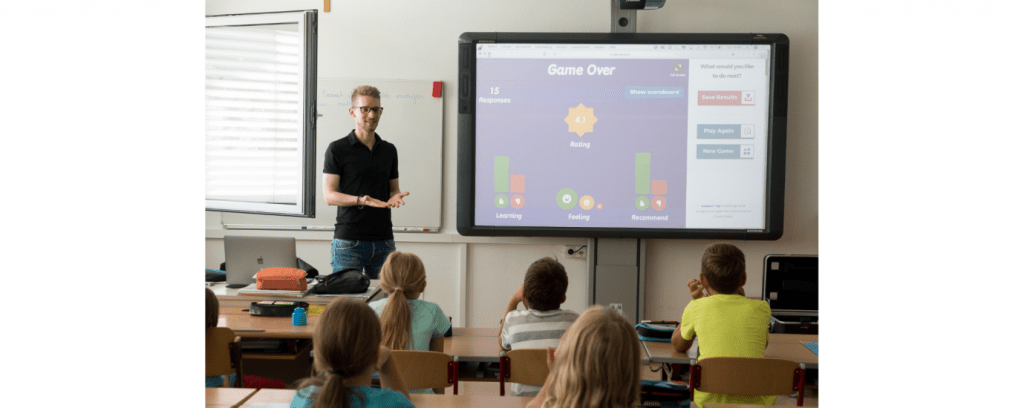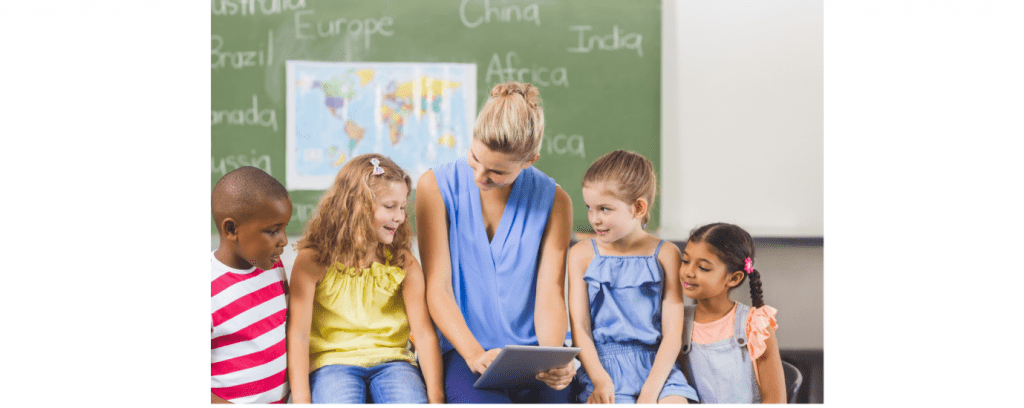The knowledge and values imparted to children during their formative years will stay with them for a lifetime, shaping the way they interact with and contribute to society as they grow older. As future leaders of society, young people must receive a comprehensive and well-rounded education. Teachers play a vital role in this process by providing education during the critical period of early childhood and guiding students through their formative years, whether it’s through traditional classes, extracurricular activities, or other programs like online coding classes for kids.
In this blog, we will explore teachers’ unique and powerful impact on students and discuss strategies for building positive teacher-student relationships.
Why Teachers are important to Society?
Teachers are important in the 21st century for several reasons.

First, the world is rapidly changing and becoming increasingly complex, requiring individuals to have a wide range of knowledge and skills to succeed. Teachers play a critical role in helping students develop the knowledge, skills, and critical thinking abilities necessary to navigate this ever-changing landscape.
Secondly, with rapid technological advancements and increased access to information, teachers help students learn how to navigate and utilize technology responsibly, and how to critically evaluate the abundance of information available to them.
Thirdly, increasing cultural and societal diversity requires teachers to be culturally responsive and to foster an inclusive learning environment for all students.
Finally, they help students to develop the skills and dispositions that are necessary for success in the 21st-century economy. These include problem-solving, creativity, innovation, communication and collaboration, and adaptability.
The Powerful Impact of Teachers on Students
The teacher-student relationship is one of the most important relationships in a person’s life. A good teacher-student relationship can lead to
- Greater learning
- Improved academic performance
- Increased self-esteem
Teachers are integral to the formation of minds, and their influence can shape the future of a student.
As teachers, we have the opportunity to open minds and unlock potential. Students look to us for guidance and support, so we must create positive and productive learning environments. We must be mindful of our actions and words, as our words and actions can have a lasting impact on our students.
The Importance of Teacher-Student Relationships
The teacher-student relationship is essential to the success of both parties. It is a two-way relationship in which the teacher and student work together to achieve a common goal. A positive and productive teacher-student relationship is key to ensuring that students have the best chance of success in the classroom.
A positive teacher-student relationship is built on trust, respect, and understanding.

- Teachers must communicate openly and honestly with their students and listen to their opinions and ideas.
- Teachers must also be patient and understanding of their students and their individual needs.
- It is also essential that teachers create a safe and inclusive environment in which all students feel comfortable and accepted. This means that teachers must be aware of their biases and strive to be culturally competent.
- It is also important for teachers to be supportive of their students, and to help them to set and reach their goals.
Strategies for Building Positive Teacher-Student Relationships
Building positive teacher-student relationships can be challenging, but some strategies can help.
- Get To Know Your Students: Take the time to learn about their interests, hobbies, and goals. This will help you to better understand your students and build trust.
- Set Clear Expectations And Provide Consistent Feedback: Let your students know what you expect from them, and provide feedback on their progress. This will help them to stay motivated and on track.
- Encouragement and Positive Reinforcement: Praise your students when they do well, and provide constructive criticism when needed. Show your students that you believe in them and are invested in their success.
- Be Open And Approachable: Be available to your students, and let them know that you are there to help. This will create an atmosphere of trust and mutual respect.
The Benefits of Positive Teacher-Student Relationships
Positive teacher-student relationships can have many benefits for both parties.
- For teachers, it can lead to increased job satisfaction and a better teaching experience. For students, it can lead to improved academic performance and increased self-esteem.
- Improved communication: When students feel comfortable and accepted, they are more likely to open up and ask questions. This can help to foster a deeper understanding of the material and improve academic performance.
- Greater student engagement in the classroom: When students feel supported and respected, they are more likely to participate in class and stay focused. This can lead to higher grades and a better learning experience.
Challenges of Maintaining Positive Teacher-Student Relationships
Maintaining positive teacher-student relationships can be challenging.
- It is important to remember that every student is unique and has different needs.
- It is important to be aware of these individual needs and be prepared to adjust your teaching style accordingly.
- It can also be difficult to find the time to build strong relationships with your students.
- With the increasing demands on teachers’ time, it can be hard to make time for individual connections. It is important to prioritize building relationships with your students, as it can have a huge impact on their learning experience.
- It is also important to remember that there will be times when your students don’t respond to your efforts. This is normal and to be expected.
It is important to remain patient and understand that your students may need extra time and support.
Role of Teachers in Online Coding Classes
Online coding classes can be a transformative experience for students, giving them the tools and knowledge to become creators and innovators in the digital age. With the right instruction and guidance, teachers have the unique opportunity to empower their students to take a coding class and turn it into a life-changing experience.

By introducing them to new concepts, providing hands-on activities, and engaging them in meaningful discussions, teachers can help their students gain the confidence they need to take on coding challenges and make the most of their online coding classes.
Making a real impact in the Digital World
Online coding classes can help students make a real impact in the digital world.
- Students can use the skills that they’ve learned in the course to build apps, and games, create websites, or design artificial intelligence tools.
- They can also use their new knowledge to transform industries or make a difference in people’s lives.
- Students can build tools that make a positive impact on the world, such as apps that help people in underserved communities gain access to healthcare.
- They can also create code that can help industries become more efficient and effective, such as coding that can help doctors improve the way they manage patients.
With the right tools and the right knowledge, students can make a real impact in the digital world and make a positive change in the world around them.

SkoolOfCode’s coding teachers are a group of highly qualified individuals who are experts in computer science or engineering. They are committed to providing an engaging learning environment using the latest trends in STEM and coding education for K12.
How do Teachers help Build the Economy?
Teachers play a crucial role in the economic development of a country by educating and preparing students for the workforce. They provide students with the knowledge, skills, and values necessary for success in a competitive global economy.
Teachers help to develop essential skills for innovation and progress in any economy. They also play a vital role in fostering an inclusive and culturally responsive learning environment, which is necessary for a diverse workforce and a strong economy.
Moreover, by providing students with a well-rounded education, teachers help to develop individuals who are not just specialized in one field but are also well-equipped to adapt to the changing demands of the economy. This is important in today’s rapidly changing economy, where individuals must be able to adapt to new technologies and changing job markets.

In addition, teachers play a role in developing the next generation of leaders, thinkers, and entrepreneurs who will drive economic growth and development. They also help to create a culture of lifelong learning that is essential for personal and professional development, which ultimately benefits the economy.
Characteristics of an Inspiring Teacher
The following characteristics distinguish an ordinary teacher from a genuinely exceptional one who serves as a role model for their students.
- Passion: Great teachers’ passion for their topic and students is contagious.
- Empathy: Can relate to their students and understand their challenges.
- Engaging students: Make learning fun and participatory.
- Knowledge: Knows their subject and can simplify complicated concepts.
- Flexibility: Can alter their teaching style to suit their students.
- Creativity: Are creative and develop new methods to make learning entertaining and meaningful.
- Patience: Can deal with students of various abilities.
- Encouragement: Inspire and motivate students.
- Professionalism: From lesson planning to classroom administration, effective teachers are professional.
- Dedication: Works hard to help students achieve in and out of the classroom.
- Leadership: Lead by example, modeling excellence and honesty.
- Lifelong learner: Continually learning and can use new technology and instructional methods.
- Cultural sensitivity: Respects and incorporates students’ cultures into their lessons.
- Communication: Communicate well with kids and parents, building good and collaborative relationships.
Beyond the Curriculum: The Crucial Role of a Teacher as a Protector
Being able to identify and address potential issues is a crucial aspect of a teacher’s role, as it allows them to serve as a protector for their students. As a protector, a teacher should also be attentive to the well-being of their students both inside and outside the classroom. This means being aware of any changes in their behavior or mood, being able to recognize if a student is experiencing stress, anxiety, or other mental health concerns, and taking appropriate action to support the student and address the issue.

In addition, teachers should be familiar with the resources available to them, such as counseling services, and know how to refer students for support if needed.
Overall, the role of a teacher as a protector encompasses not only their duty to ensure the safety of students but also to promote the well-being of the students mentally, emotionally, and academically.
How Parents can help in making a positive Teacher-Student Relationship

Parents can help create positive teacher-student relationships in several ways:
- Communicate with the teacher: Parents should establish open lines of communication with their child’s teacher. This can be done through phone calls, emails, or face-to-face meetings. By staying informed about what is happening in the classroom, parents can better understand the teacher’s perspective and how they can support their child’s learning.
- Show appreciation: Showing appreciation for the teacher’s hard work and dedication can go a long way in building a positive relationship. Parents can write thank-you notes, send small gifts, or volunteer to help in the classroom.
- Encourage positive behavior: Parents can help create a positive relationship by encouraging their children to be respectful, responsible, and cooperative in the classroom.
- Support homework and classwork: Parents can help their children by providing a quiet and comfortable place to study, helping to organize their homework, and providing appropriate resources.
- Show a positive attitude towards school and teachers: Parents can be positive and supportive role models in their child’s educational journey and can help establish positive attitudes towards school and teachers.
By building and maintaining a positive relationship with their child’s teacher, parents can help ensure that their child receives the best education possible and has a successful school experience.
Conclusion
Teachers play a transformative role in empowering students by providing them with the knowledge, skills, and values necessary to succeed in life. They act as role models, educators, and mentors, helping students to develop critical thinking abilities, navigate a rapidly changing and complex world, and become responsible citizens. In the 21st century, teachers are essential to the success of students and society as a whole, and parents play a crucial role in supporting teachers and building positive relationships that foster student learning.
Teachers are key in shaping the future of society by helping to educate and develop the next generation of leaders, thinkers, and problem-solvers. As teachers, we have the opportunity to open minds and unlock potential. We must be mindful of our actions and words, as our words and actions can have a lasting impact on our students.
Building positive teacher-student relationships can be challenging, but it is essential for student success. It is important to get to know your students, set clear expectations, be supportive and encouraging, and be available. Sustaining positive teacher-student relationships takes effort and dedication, but the rewards are worth it.
Are you a student looking for online coding classes for kids? Book a trial and check out our range of coding classes for kids today!
Ms.Manpreet Virk, Head of E-learning and an educator at SkoolofCode with a degree in M.Phil and Master in Computer Science. She is passionate about learning and teaching young minds.
